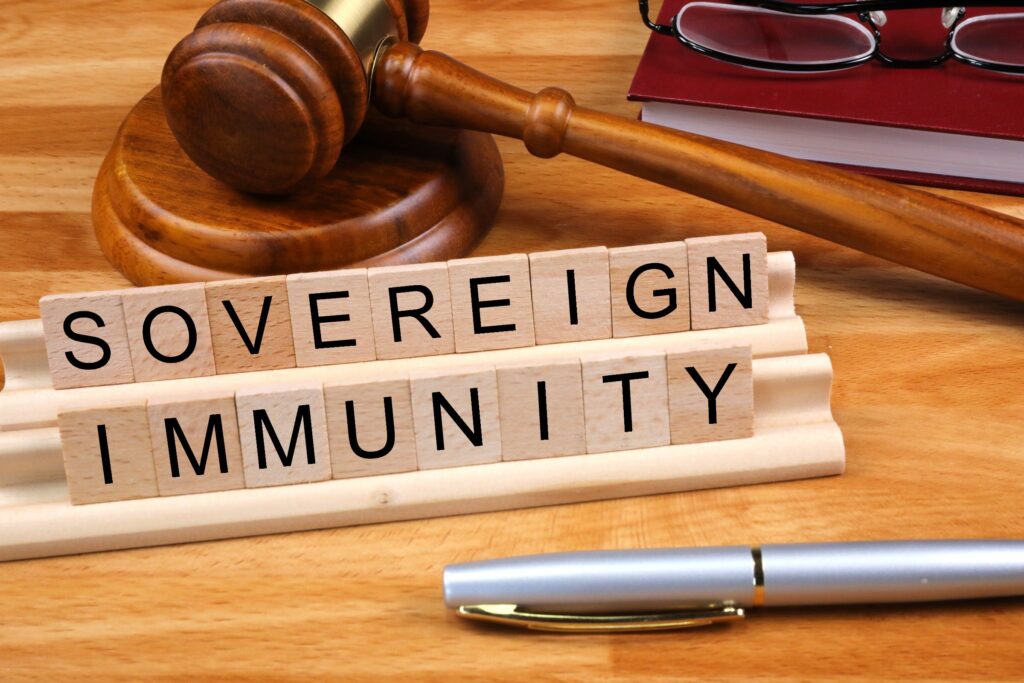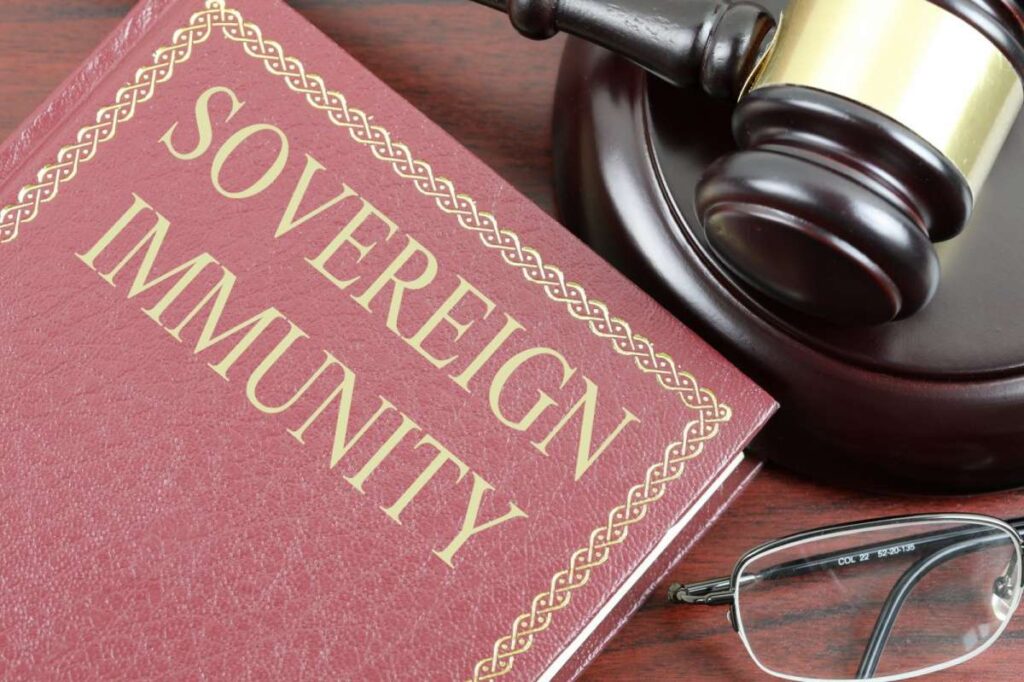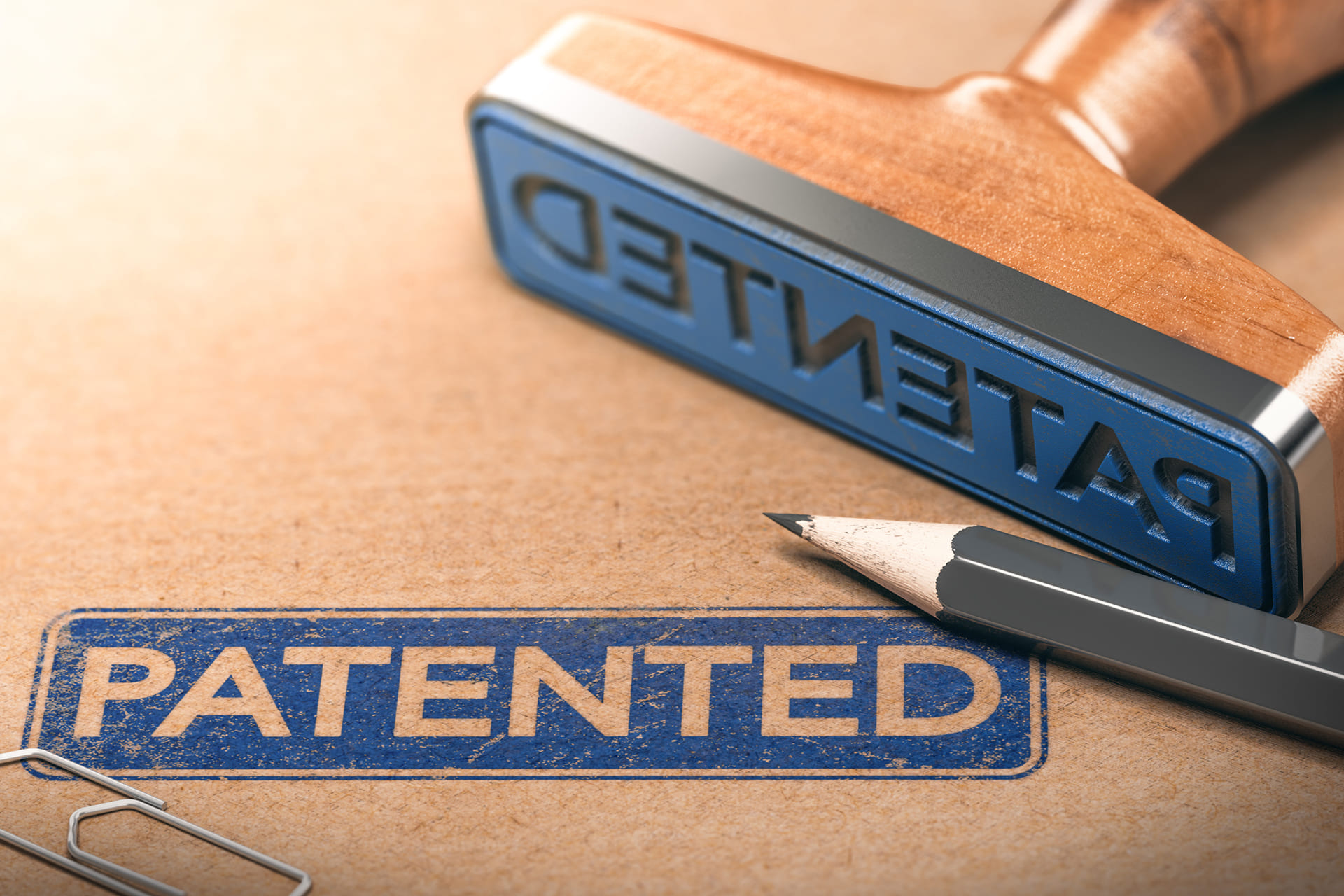Sovereign Immunity severely limits lawsuits against the government. It limits copyright infringement lawsuits against both States and the Federal Government.
The 11th Amendment generally prevents lawsuits against a state in federal courts. However, sovereign immunity does not prevent injunctions against states. Nor does it prevent infringement suits against state officials acting in their individual capacity (as opposed to their official government capacity).
To sue the Federal Government for copyright infringement, a special procedure is required. United States v. Mitchell, 445 U.S. 535, 538 (1980); United States v. Sherwood, 312 U.S. 584, 586 (1941).
Suing the Federal Government
Procedure. Infringement claims against the Federal Government require a special procedure. 28 U.S.C. § 1498(b), see also, Boyle v. United States, 200 F.3d 1369, 1372-73 (Fed. Cir. 2000). First, the plaintiff must file an administrative claim. 28 C.F.R. § 14.2(a). If the claim is denied, or after 6 months of inaction from the Government, the plaintiff can then sue the Government for copyright infringement. This lawsuit must be brought in the Court of Federal Claims in D.C.
Damages. Compensation is limited to “the minimum statutory damages” for copyright infringement. 28 U.S.C. § 1498(b).

Suing State Governments
Congress can limit the state’s sovereign immunity. Pennsylvania v. Union Gas Co., 491 U.S. 1 (1989). But a statute limiting sovereign immunity must use explicit language. Atascadero State Hosp. v. Scanlon, 473 U.S. 234 (1985).
Congress amended the Copyright Act in 1990 to incorporate explicit language limiting sovereign immunity. The “Copyright Remedy Clarification Act” added two sentences to section 501(a), which defines copyright infringers. The addition states:
As used in this subsection, the term “anyone” includes any State, any instrumentality of a State, and any officer or employee of a State acting in his or her official capacity. [They] shall be subject to the provisions of this title in the same manner and to the same extent as any nongovernmental entity.
In addition, a new section 511 was added, explicitly providing that the state, the state instrumentality, or their employees “shall not be immune, under the Eleventh Amendment of the Constitution of the United States or any other doctrine of sovereign immunity” from suit in a federal court for copyright infringement, and that the full range of remedies ordinarily available against private defendants is also available in such suits.

Constitutional Challenges for Lawsuits Against States
The constitutionality of the 1990 amendments were subject to serious question. In Seminole Tribe of Florida v. Florida, the Supreme Court overruled earlier precedent and held (5 to 4) that the Commerce Clause is not a source of congressional authority to overturn states’ sovereign immunity. Seminole Tribe of Florida v. Florida, 517 U.S. 44 (1996).
Then, in 1999, the Court considered whether it was constitutional for Congress to subject the states to patent-infringement or trademark-infringement liability by means of provisions that were essentially the same as those added to the Copyright Act in 1990.
In the two Florida Prepaid Postsecondary cases, the Court considered the Commerce and Patent Clauses of the Constitution, as well as the Fourteenth Amendment, which empowers Congress to enact legislation implementing the constitutional ban on state deprivation of “property” without due process of law. The Court held (again, 5 to 4) that on the facts presented none of those constitutional sources empowered Congress to abrogate the immunity of the states against federal-court actions for damages for patent or trademark infringement. Coll. Sav. Bank v. Fla. Prepaid Postsecondary Educ. Expense Bd., 527 U.S. 666 (1999) (Lanham Trademark Act); Fla. Prepaid Postsecondary Educ. Expense Bd. v. Coll. Sav. Bank, 527 U.S. 627 (1999) (Patent Act).
The following year, in Chavez v. Arte Publico Press, the Florida Prepaid Patent Act decision was held dispositive by the Court of Appeals for the Fifth Circuit in an action for copyright infringement by an author against the University of Houston, a state agency. Chavez v. Arte Publico Press, 204 F.3d 601 (5th Cir. 2000). The court held that the 1990 amendments to the Copyright Act purporting to render states fully liable for copyright infringement, including damages, exceeded Congress’s power under both Article I and the 14th Amendment.
Practical Significance
Given the broad use of copyrighted materials by state instrumentalities—libraries, schools, universities, as well as the wide range of typical executive and administrative agencies—their immunity against damages actions would create a major gap in the enforcement of the copyright laws.
More to read: Breakdown of Exclusive Rights

